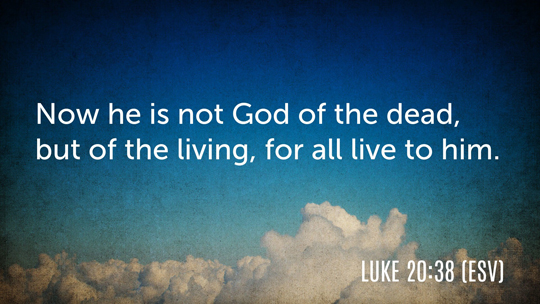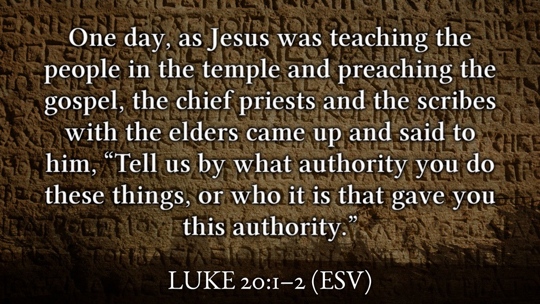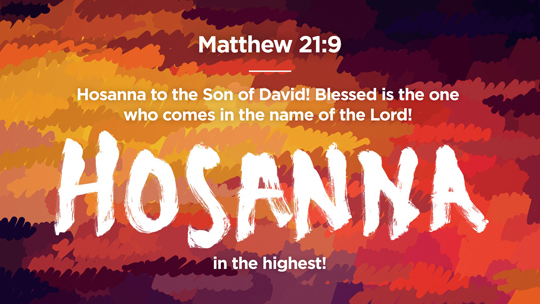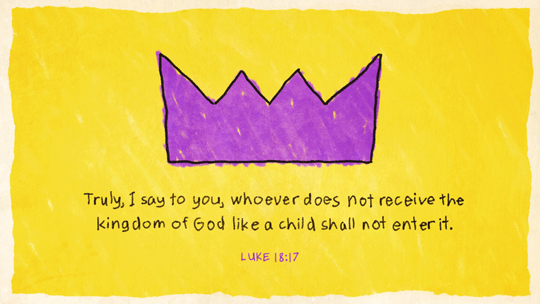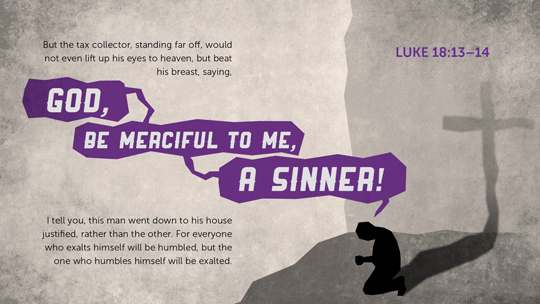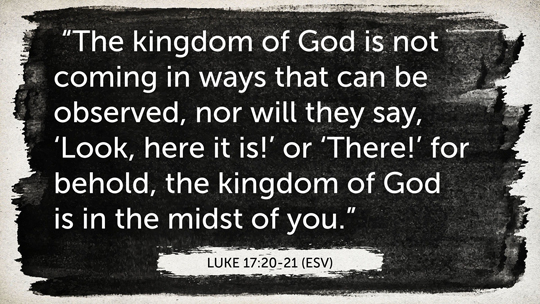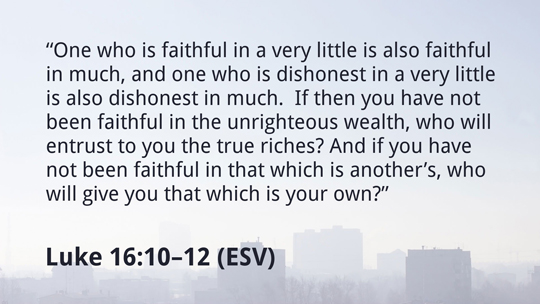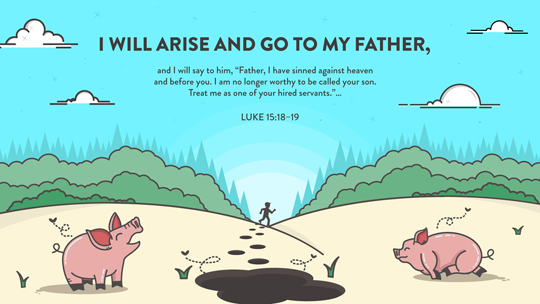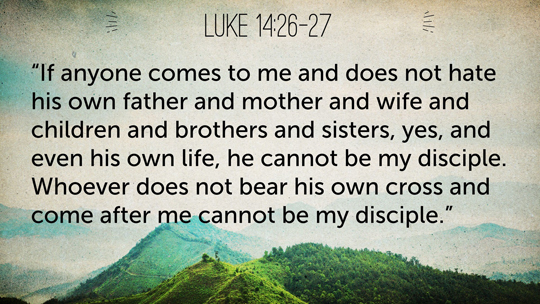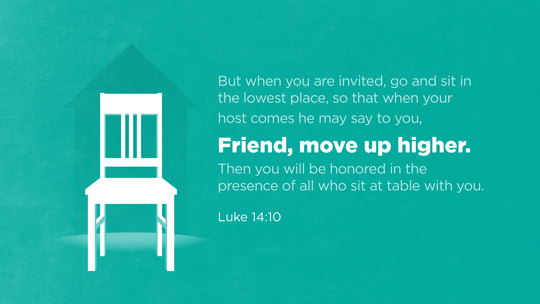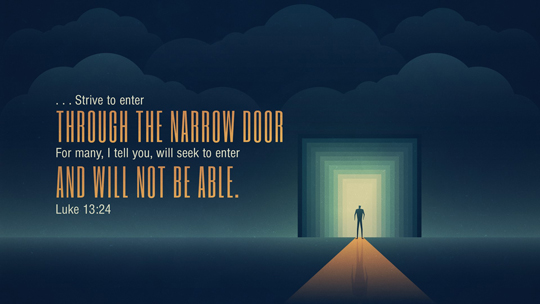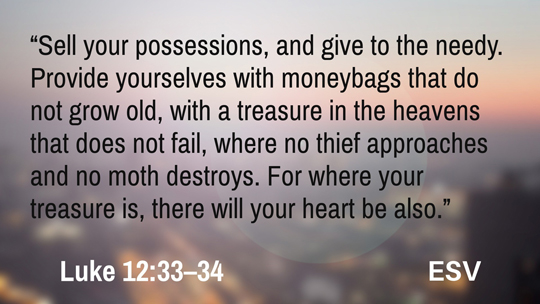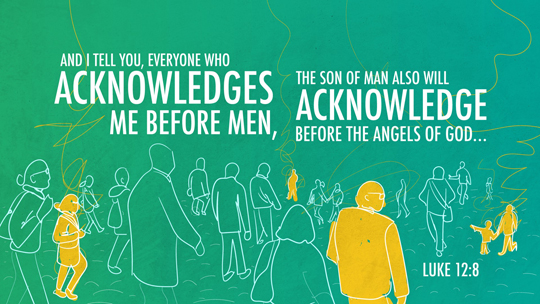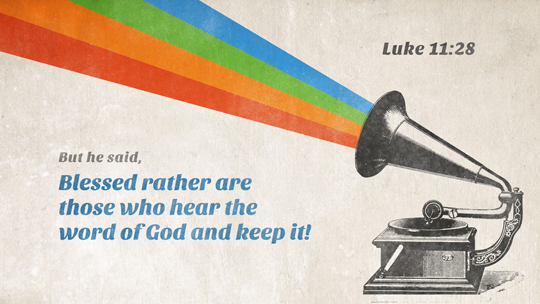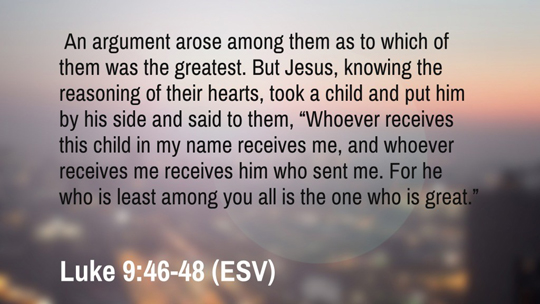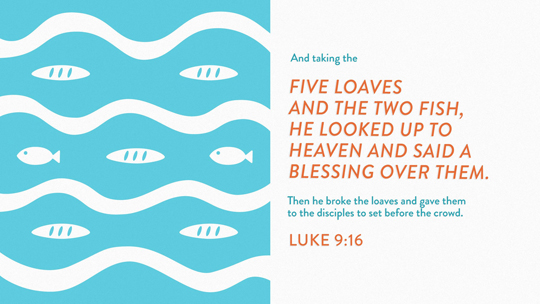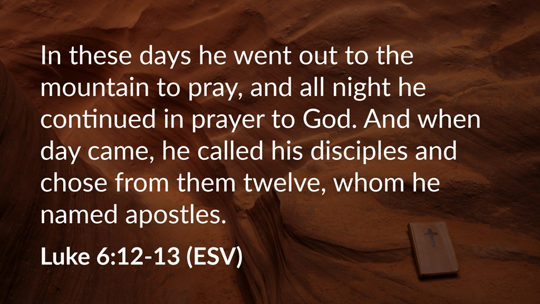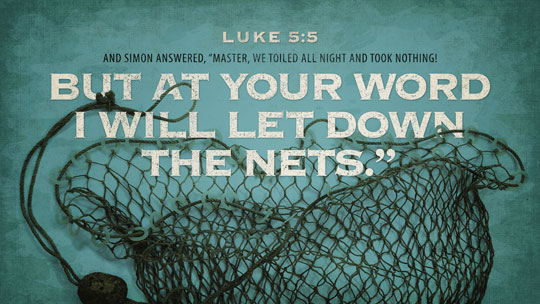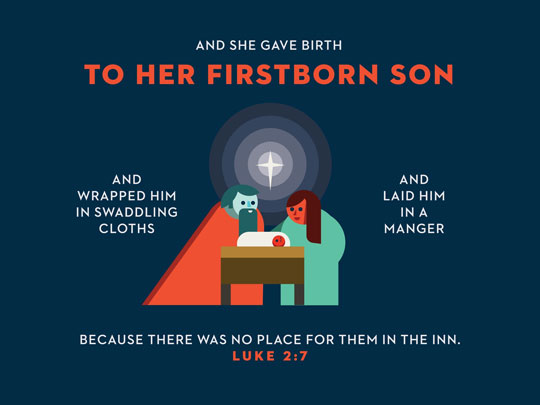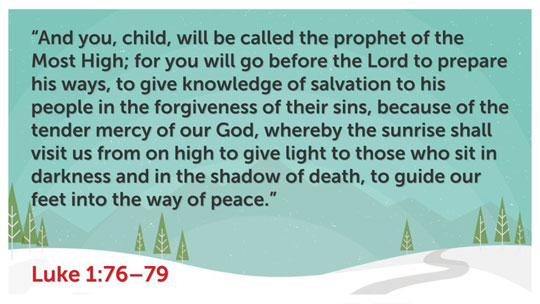
This sermon was preached by Brian Watson on Resurrection Sunday, April 12, 2020.
MP3 recording of the sermon.
PDF of the written sermon (or read below).
I want to begin by asking you three questions. One, how are you feeling today? How are you doing? Some of us might feel great: We’re three weeks into spring, warmer weather is coming, and the Red Sox haven’t lost a game yet this season. Others might not feel so great, especially in this time of the coronavirus pandemic. Some of us may feel anxious, or trapped in our own homes, going stir crazy. Some of us may be worried about finances. Others may be worried about our loved ones. And some of us might not feel well in general. We’re battling health problems, we’re lonely and depressed, and we don’t feel very hopeful right now.
That leads me to my second question: What are you putting your hope in? Many of us are looking forward to getting back to what we usually do, such as spending time with people we love, working outside of the home, going out to eat, going to the gym. We may put our hope in little things, like eating a nice meal, reading a book, or watching a new movie. We may hope for bigger things: Some of us are hoping that our health will improve, or that we’ll get a promotion. Some of us are looking forward to graduating, or moving, or getting a new job. Some of us may not see hopeful things on the immediate horizon, so we’re putting our hope in ultimate things, that one day God will make all things right. Some of us may have little hope at all right now. Though it’s the beginning of spring, some of us are stuck in fall, where everything is decaying. Some of us are stuck in winter, where everything is dead and barren.
That leads me to my third question: What is troubling you today? What has disappointed you? What has you feeling down? Sometimes we feel troubled simply because we live in a world where things go wrong. We live in a world where our bodies break down and we die. We live in a world where people treat each other poorly. We may also feel down because we had our hopes set on something, and then that hope was crushed. Often, it’s that gap between our expectations and reality that troubles us. We hoped for a relationship that ended. We had hopes for a job that we didn’t get. We had hopes that seeing a new doctor, or even having surgery, would fix our bodies, and yet we’re not healed.
Today, it’s Easter. We remember the resurrection of Jesus. And as we remember that, we’re going to look at a passage that speaks to our troubles and our dashed dreams, but also speaks to a great hope that we have.
Today, we’re going to look at Luke’s Gospel, one of the four biographies of Jesus that we find in the Bible. If you’re not used to reading carefully through the Bible, this may be new to you. Christians believe that the Bible is ultimately from God. The Bible is the way that God reveals himself most clearly. So, we consider it carefully. Otherwise, we would simply be making things up about God. And that’s one of humanity’s biggest problems. We try to make God in our image, after our likeness. But God has said that he has made us in his image. We’re supposed to conform to him, and not the other way around.
Today, we’re going to read Luke 24. We’ll start by reading the first twelve verses:
1 But on the first day of the week, at early dawn, they went to the tomb, taking the spices they had prepared. 2 And they found the stone rolled away from the tomb, 3 but when they went in they did not find the body of the Lord Jesus. 4 While they were perplexed about this, behold, two men stood by them in dazzling apparel. 5 And as they were frightened and bowed their faces to the ground, the men said to them, “Why do you seek the living among the dead? 6 He is not here, but has risen. Remember how he told you, while he was still in Galilee, 7 that the Son of Man must be delivered into the hands of sinful men and be crucified and on the third day rise.” 8 And they remembered his words, 9 and returning from the tomb they told all these things to the eleven and to all the rest. 10 Now it was Mary Magdalene and Joanna and Mary the mother of James and the other women with them who told these things to the apostles, 11 but these words seemed to them an idle tale, and they did not believe them. 12 But Peter rose and ran to the tomb; stooping and looking in, he saw the linen cloths by themselves; and he went home marveling at what had happened.[1]
The setting is a Sunday, just outside of Jerusalem. Jesus had been crucified on a Friday. Though he had done nothing wrong—as Luke makes clear (23:4, 14, 22, 47)—he was treated as a criminal. The Jewish religious leaders didn’t believe that he was the Messiah, the promised King of Israel. They didn’t believe he was the Son of God. They thought he was blaspheming. They also were jealous of him. So, they wanted to kill him. To do that, they brought him to Pontius Pilate, the Roman Empire’s governor over Judea. Pilate didn’t think Jesus was guilty or a threat to Rome, but he wanted to make sure that the crowds in Jerusalem didn’t break out into a riot. So, he had Jesus killed. After Jesus died, he was buried in a rich man’s tomb. We’re told that a number of women who had followed him saw where he was buried.
Now, we see that the women come back to the tomb on Sunday morning. They were going to anoint Jesus’ body with spices, which was a practice that people did at the time, in part to keep the decomposing body from smelling.[2] You can imagine their surprise when they return to the tomb and find it open and empty. They see a couple of angels. They remind the women that Jesus had predicted his own death and resurrection (Luke 9:21–22; 18:31–34). So, the women go and tell Jesus’ eleven apostles what had happened.
How do the apostles respond? Do they say, “Of course! We have absolutely no problem believing that dead bodies come back to life!” No, they don’t respond like that. We’re told, “these words seemed to them an idle tale, and they did not believe them” (verse 11). Why wouldn’t Jesus’ own apostles believe? After all, Jesus had told them at least twice that he would be raised from the dead. I suppose there are three reasons why they didn’t believe. One, people knew then, just as people know now, that dead people simply don’t come back to life. Anybody would find this news hard to believe. Two, people in Jesus’ day weren’t expecting that one person would come back to life in the middle of history. British theologian N. T. Wright has talked about this quite a bit. He says that Gentiles weren’t expecting this sort of thing.[3] He says that Jewish people “never imagined that ‘resurrection’ would happen to one person in the middle of time; they believed it would happen to all people at the end of time [Dan. 12:2; John 11:23–24]. The Easter stories are very strange, but they are not projections of what people ‘always hoped would happen.’”[4] So, the apostles weren’t expecting that a man would come back from the grave in an indestructible body in the middle of history. Here’s the third reason they didn’t believe: In that day, women were not regarded as trustworthy witnesses. In the first century in Palestine, a woman’s testimony was almost useless. In that male-dominated society, a woman’s testimony would be heard in court only in rare cases.[5] Now, to be clear, the Bible has a very high view of women. The Bible doesn’t teach that women can’t be believed. But at this time and in this place, a woman’s testimony wasn’t credible. In fact, that’s one of the more significant bits of evidence that shows that this story is true. If someone were making up this story, they wouldn’t have chosen women to be witnesses.
What’s interesting is that most of the objections that people have to the resurrection of Jesus are brought up in the Gospels: “We can’t believe it. Those people who saw the empty tomb or the resurrection must have seen a vision. They were really hallucinating. Someone must have stolen the body. This is simply too good to be true.” But it is true, and there are many good reasons to believe it’s true. If you want to learn more, go to wbcommunity.org/resurrection.
Luke leaves that scene with Peter, one of the apostles, confused. Then he shifts to another scene. Later that day, two other disciples were heading to Emmaus, and on the way there, they were met by a stranger. We read about that in verses 13–24.
13 That very day two of them were going to a village named Emmaus, about seven miles from Jerusalem, 14 and they were talking with each other about all these things that had happened. 15 While they were talking and discussing together, Jesus himself drew near and went with them. 16 But their eyes were kept from recognizing him. 17 And he said to them, “What is this conversation that you are holding with each other as you walk?” And they stood still, looking sad. 18 Then one of them, named Cleopas, answered him, “Are you the only visitor to Jerusalem who does not know the things that have happened there in these days?” 19 And he said to them, “What things?” And they said to him, “Concerning Jesus of Nazareth, a man who was a prophet mighty in deed and word before God and all the people, 20 and how our chief priests and rulers delivered him up to be condemned to death, and crucified him. 21 But we had hoped that he was the one to redeem Israel. Yes, and besides all this, it is now the third day since these things happened. 22 Moreover, some women of our company amazed us. They were at the tomb early in the morning, 23 and when they did not find his body, they came back saying that they had even seen a vision of angels, who said that he was alive. 24 Some of those who were with us went to the tomb and found it just as the women had said, but him they did not see.”
Here, we find two disciples, one of whom is named Cleopas. They are returning from Jerusalem to a village called Emmaus. At first, they don’t recognize Jesus. And they’re sad. When Jesus asks them what happened, Cleopas starts to say that Jesus was a prophet who worked miracles and spoke amazing things. He says, “we had hoped that he was the one to redeem Israel.” Even though they had heard the report from the women, and even though they knew the apostles had found the tomb empty, it seems like they’re crushed. They don’t know what to believe. They certainly don’t seem hopeful. The reason they were so crushed is because they thought that the Messiah would come and deliver Israel out of captivity to the Roman Empire. They were hoping for a political savior, and Jesus obviously didn’t defeat the Roman Empire. They don’t understand why Jesus died, and they can’t believe he was raised from the dead. You can tell they really didn’t believe the women’s report, because Cleopas says they had a “vision” of angels. He doesn’t say they actually saw angels. And though the disciples found the empty tomb, no one seems to have seen Jesus alive.
Now, before we move on, try to put yourself in their shoes. Imagine you had your hopes set on something. Your dreams seemed to be coming true. And then, suddenly, those dreams are dashed. Now, today you may very well be hoping for a political savior. You may have your hopes wrapped up in who wins the next election. You may hope that your health will improve, or that you’ll get a better job. Some of you may hope that a relationship will improve, or that you’ll find the man or woman of your dreams. But what happens when the thing you hoped for doesn’t come true? What happens when you get the thing you hoped for, but that thing—or that person—turns out to be a disappointment? What happens then?
And let’s push this further. What happens if you get a great job, and make a lot of money? What then? Are you happy? What happens if you have a great family? Will you be completely satisfied? These things don’t last forever. The fact is that we live in a world where we lose things. We lose money and jobs and good looks and good health. And, eventually, we will lose loved ones and our own lives to the grave. In a world where even the best things can disappoint us, and when the best things have an expiration date, where you put your hope? Do you have an answer? Or do you just refuse to think about it? It’s something worth thinking about. In a world of death, where do we find hope?
There’s an interesting book by a French philosopher, who happens to be an atheist, named Luc Ferry. The book is called A Brief History of Thought. He begins by saying that the great problem for humanity is death. He says we’re different from animals because “a human being is the only creature who is aware of his limits. He knows that he will die, and that his near ones, those he loves, will also die. Consequently he cannot prevent himself from thinking about this state of affairs, which is disturbing and absurd, and almost unimaginable.”[6] He asks, “what do we desire above all else? To be understood, to be loved, not to be alone, not to be separated from our loved ones—in short, not to die and not to have them die on us.”[7] He says that the fear of death keeps us from really living, because we’re anxious about the future. What is the answer to this problem? Is there an answer? We can either hope that there is answer or we can give up hope and assume there is none. What is the answer for you?
I’ll come back to that idea, but first let’s come back to Luke’s words to see what happened next. I’ll read verses 25–35:
25 And he said to them, “O foolish ones, and slow of heart to believe all that the prophets have spoken! 26 Was it not necessary that the Christ should suffer these things and enter into his glory?” 27 And beginning with Moses and all the Prophets, he interpreted to them in all the Scriptures the things concerning himself.
28 So they drew near to the village to which they were going. He acted as if he were going farther, 29 but they urged him strongly, saying, “Stay with us, for it is toward evening and the day is now far spent.” So he went in to stay with them. 30 When he was at table with them, he took the bread and blessed and broke it and gave it to them. 31 And their eyes were opened, and they recognized him. And he vanished from their sight. 32 They said to each other, “Did not our hearts burn within us while he talked to us on the road, while he opened to us the Scriptures?” 33 And they rose that same hour and returned to Jerusalem. And they found the eleven and those who were with them gathered together, 34 saying, “The Lord has risen indeed, and has appeared to Simon!” 35 Then they told what had happened on the road, and how he was known to them in the breaking of the bread.
When Jesus first encounters these two disciples, they don’t recognize him. They don’t see him. And they didn’t understand what Jesus had done in dying. They didn’t believe he had really risen from the dead. But now, they finally see who has been walking with them. But they don’t see Jesus until they do two things. First, Jesus tells them that they were slow to believe all that the prophets had spoken. He asks, rhetorically, “Was it not necessary that the Christ should suffer these things and enter into his glory?” The Christ is another way of saying, “The Messiah.” What Jesus means is that these two Jewish men should have known the Hebrew Bible, the Old Testament, well enough to know that the Messiah would suffer and die. Jesus was probably referring to the famous passage in Isaiah 53 about a suffering servant who would die for the sins of this people and make them righteous. He could also have referred to a number of Psalms that speak of one who suffered (such as Psalm 22). And then we’re told that Jesus has a Bible study with these men: He interpreted all that the Old Testament said about him, from the first five books of the Bible (“Moses”) through the Prophets and beyond.
Now, you won’t find the name “Jesus” in the Old Testament of your English Bibles, though the equivalent in Hebrew is “Joshua.” But what Jesus means is that, one way or another, all the Old Testament is about him. The Old Testament certainly shows the need for Jesus. The Old Testament reveals our condition, that we were made to have a relationship with God, but we’ve turned away from him. Therefore, we are separated from God and separated from each other. We fight, we experience pain, and we die. There are things like natural disasters and viruses in the world. But the Old Testament also promises that one day God would make things right. He would do this through a descendant of Abraham, the patriarch who lived two thousand years before Jesus (Gen. 12:1–3; 22:18; Gal 3:16). He would do this through a prophet like Moses, who would reveal God’s word (Deut. 18:15–19.) He would do this through a descendant of King David, a perfect king who would rule forever (2 Sam. 7:12–13; Isa. 9:1–7; 11:1–9). And he would do this through that suffering servant, who, though he was righteous, would die for his people’s sins, so that they could live (Isa. 52:13–53:12). Also, all the many kings, prophets, priests, sacrifices, the tabernacle and the temple—all these things point to Jesus.[8]
Here’s the second thing that happens before these disciples can see Jesus. They eat with him. The words that are used—“he took the bread and blessed and broke it and gave it to them” (v. 30)—are very similar to the words used in Jesus’ Last Supper with his disciples (Luke 22:19). What does this mean? Well, eating with someone means fellowship. It means sharing with someone. In a very real sense, these disciples are sharing something life-giving with Jesus. And Jesus is the one who is serving them the thing that gives life. In John’s Gospel, Jesus says that he is “the bread of life.” He says, “I am the bread of life; whoever comes to me shall not hunger, and whoever believes in me shall never thirst” (John 6:35). Of course, Jesus is speaking metaphorically here. He means that he gives life. He gives spiritual life. He satisfies the hunger of our hearts. He quenches our spiritual thirst. And, as God, Jesus literally sustains life and can cause us to live forever. Just a few verses later in John 6, Jesus says, “Truly, truly, I say to you, unless you eat the flesh of the Son of Man and drink his blood, you have no life in you. Whoever feeds on my flesh and drinks my blood has eternal life, and I will raise him up on the last day. For my flesh is true food, and my blood is true drink” (John 6:53-55). Now, Jesus isn’t advocating for cannibalism. He’s speaking metaphorically. He’s saying, if you want to live—truly live—I need to be your spiritual food. If you want to live forever, I need to be your spiritual drink. In other words, we need a steady diet of Jesus in order to have real life.
Now, why do I bring these things up? Here’s the point: In order to see who Jesus really is, we need to see him in the Bible. We need to spend time with God’s word. We need to read good chunks of it, not just little crumbs here and there. We need to feast on the Bible in order to know who Jesus really is. Otherwise, we’ll never really see Jesus. And we need to “feed” on Jesus, in the sense that we need to spend time with him. How do we do that? Coming to church is a great start. So is reading the Bible. So is praying. But the fact is people will never really know Jesus unless they’re willing to “taste and see that the Lord is good” (Ps. 34:8; Heb. 6:5; 1 Pet. 2:3). If you’re not willing to read the Bible a bit and spend some time in a church that actually teaches the Bible, you’ll never really know Jesus. You won’t know what he’s like. And, according to Jesus, you won’t have the hope of eternal life. But if you’re willing to pursue Jesus, he may open up your eyes so you can see him as he truly is.
After Jesus opens the eyes of these disciples, he disappears. And the disciples go back to Jerusalem so they can tell the apostles what happened. And just as they do that, who shows up? Let’s see in verses 36–43:
36 As they were talking about these things, Jesus himself stood among them, and said to them, “Peace to you!” 37 But they were startled and frightened and thought they saw a spirit. 38 And he said to them, “Why are you troubled, and why do doubts arise in your hearts? 39 See my hands and my feet, that it is I myself. Touch me, and see. For a spirit does not have flesh and bones as you see that I have.” 40 And when he had said this, he showed them his hands and his feet. 41 And while they still disbelieved for joy and were marveling, he said to them, “Have you anything here to eat?” 42 They gave him a piece of broiled fish, 43 and he took it and ate before them.
Of course, Jesus shows up. Again, the apostles can’t believe it. They aren’t expecting to see Jesus, even after they hear reports from the women and from these disciples. At first, they think Jesus is a ghost. But Jesus says, “Look at me. Can’t you see it’s me in the flesh? Touch me, can’t you see this is a real body?” Ghosts don’t have real bodies. And they don’t eat. But Jesus does. Some people have claimed that the apostles actually hallucinated, or that they had some kind of spiritual vision of Jesus. But that couldn’t have happened. Groups of people don’t have hallucinations. And the New Testament makes it clear that Jesus actually rose from the dead, in a physical body (see 1 John 1:1–3). He rose in a body that cannot die again (Rom. 6:9).
And how do the disciples respond? They marvel. They were incredulous. It’s not that they didn’t believe in Jesus. It’s that they couldn’t get over the fact that a dead man was now alive again. They thought it was too good to be true. So, they “disbelieved for joy.” In the midst of their amazement, they experienced great joy. Their hope was still alive.
Then Jesus does what he did with the two disciples on the road to Emmaus. He tells the apostles that his death and his resurrection were in accordance with all of the Old Testament. He helps them understand the Old Testament. We see this in verses 44–47.
44 Then he said to them, “These are my words that I spoke to you while I was still with you, that everything written about me in the Law of Moses and the Prophets and the Psalms must be fulfilled.” 45 Then he opened their minds to understand the Scriptures, 46 and said to them, “Thus it is written, that the Christ should suffer and on the third day rise from the dead, 47 and that repentance and forgiveness of sins should be proclaimed in his name to all nations, beginning from Jerusalem.
When he says, “the Law of Moses and the Prophets and the Psalms,” he’s referring to the three divisions of the Hebrew Bible. This is the same content that we find in the Old Testament, but in a slightly different order. The point is that the whole of the Old Testament is about Jesus, and he came to fulfill it (Matt. 5:17). Jesus’ death and resurrection were all part of God’s plan. Why did God have this plan? God sent his Son so that people from all nations would repent and find forgiveness in Jesus. Repentance is turning away from your present course and turning to God. It’s changing your mind about what is true and right and ultimate. But it’s more than changing your mind. It’s changing your heart and your actions. The Bible promises that everyone who turns from their old ways and turns toward Jesus will be forgiven. They will be forgiven for rejecting God, and disobeying him, and simply ignoring him. Those who turn to Jesus will have eternal life. Though they die in this life, that’s not the end of the story. One day, Jesus will return to fix everything. When he comes, everyone will be raised from the dead. And all who are united to Jesus—everyone who has repented of sin and trusted in Jesus—will live in a perfect world, where there is no more pain, and decay, and death.
So, what does it look like to repent and have faith in Jesus? The quickest way I can say it is this: Agree with God.
Agree that he made us in his image, and not the other way around (Gen. 1:26–28). He is the ultimate truth, not us. We’re not the center of the universe, but he is (see Rom. 11:36).
Agree that though he made us to have a right relationship with him, one that involves love and worship and obedience, we have not loved him and worshiped him and obeyed him as we should. At best, we ignore God. We don’t think of him. We don’t thank him. We don’t bother to learn what he’s like. We don’t spend time with him. We don’t try to please him. At worst, we know there’s a God, we know what he wants us to do, and we don’t do it (see Rom. 3:23).
Agree that because we don’t live as we should, God has every right to remove us from his good creation forever. And when we are removed from the source of all that is good, the source of life, we find death. That’s what we deserve (Rom. 6:23).
Agree that though we deserve that God sent his Son, Jesus, into the world (John 3:16)
Agree that Jesus is God and man (John 1:1, 14; Rom. 1:3–4).
Agree that he lived a perfect life (2 Cor. 5:21; 1 Pet. 2:22). He never failed to love, worship, honor, represent, and obey the Father. He is the only one who has done this.
Agree that Jesus died on the cross to pay the penalty for our sin (Col. 2:13–14).
Agree that he rose from the grave, showing that his death was acceptable to God, that he is the only way to eternal life, and that all his people will one day be fully restored (Rom. 4:25).
Agree that Jesus is the only way to be reconciled to God, and that turning to him is the only way to be accepted by God (John 14:6; Acts 4:12).
Agree that Jesus is your King and start living for him (Rom. 14:7–8; 2 Cor. 5:14–15).
I could go on and on, but that’s basically what it looks like to put your trust in Jesus.
The end of Luke’s Gospel brings us to where the book of Acts begins. I preached through that book four years ago, and you can find all those messages on our website.[9] At the end of Luke’s Gospel, he tells his followers that they are witnesses to what he has done. He tells them that he will send the Holy Spirit to them. Then he blesses them and ascends to heaven.
48 You are witnesses of these things. 49 And behold, I am sending the promise of my Father upon you. But stay in the city until you are clothed with power from on high.”
50 Then he led them out as far as Bethany, and lifting up his hands he blessed them. 51 While he blessed them, he parted from them and was carried up into heaven. 52 And they worshiped him and returned to Jerusalem with great joy, 53 and were continually in the temple blessing God.
Earlier in the sermon, I asked how you’re feeling. I asked what was troubling you. Are you troubled by the past? Perhaps you have regrets about the wrong things that you’ve done. Look back further into the past, to the cross where Jesus died to pay for failures. If you turn to Jesus, he has already taken care of everything you’ve ever done wrong. Perhaps others have harmed you in the past. If you turn to Jesus, you can trust that Jesus will take care of all wrongdoing. He will judge everyone who has ever lived, and he will vindicate you.
Perhaps you’re troubled about the future. If you turn to Jesus, no matter what happens, in the end everything will work out for your good. You will be raised from the dead in a glorious body that can never die, and you will live in Paradise with him.
No other religion or philosophy offers what Christianity does. The good news, the gospel, addresses the problems of our past and the worries of our future. No other system of thought offers the hope that Christianity does. Earlier, I mentioned an atheistic philosopher named Luc Ferry. Even he acknowledges, “I grant you that amongst the available doctrines of salvation, nothing can compete with Christianity.” Yet he then states that while he finds the faith appealing, he doesn’t believe it.[10] What’s interesting is that earlier in his book, he acknowledges that when he studied as a university student, he knew nothing of Christianity.[11] In his own words, “for years I knew more or less nothing about the intellectual history of Christianity.”[12]
I find that is often true: Christianity is often poorly understood. It has not been weighed and found wanting. No, it’s simply not been weighed by many. It’s often misrepresented or marginalized and ignored. Whenever it’s portrayed in mainstream media, it’s almost guaranteed to be misrepresented. Often, even people who claim to be Christians misrepresent Christ. I’m doing my best to present it truly and thoughtfully here. All I ask is that you would take the time to learn about Jesus. You can read about the evidence for the resurrection on our website.[13] You can learn about Jesus by making use of our website. You can explore a sermon series called “Who Is Jesus?”[14] Most importantly, you can do that by reading the Bible. To know Jesus, you must search Jesus’ Scriptures and spend time with him. And if you taste and see, you will see that he is good.
Notes
- Unless otherwise noted, all Scripture quotations are taken from the English Standard Version (ESV). ↑
- “The Jews did not embalm, so the spices and perfumes help to calm death’s stench and slow decomposition.” Darrell L. Bock, Luke: 9:51–24:53, Baker Exegetical Commentary on the New Testament (Grand Rapids, MI: Baker Academic, 1996), 1877. ↑
- “Nobody in the pagan world of Jesus’ day and thereafter actually claimed that somebody had been truly dead and had then come to be truly, and bodily, alive once more.” N. T. Wright, The Resurrection of the Son of God, Christian Origins and the Question of God (London: Society for Promoting Christian Knowledge, 2003), 76. ↑
- N. T. Wright, Simply Jesus: A New Vision of Who He Was, What He Did, and Why He Matters (New York: HarperOne, 2011), 192. ↑
- Flavius Josephus the Jewish historian, writes in his Antiquities 4.8.15, “But let not the testimony of women be admitted, on account of the levity and boldness of their sex.” ↑
- Luc Ferry, A Brief History of Thought: A Philosophical Guide to Living, trans. Theo Cuffe (New York: Harper, 2011), 2–3. ↑
- Ibid., 4. ↑
- Jesus also says the Old Testament is about him in Luke 24:44; John 5:39. ↑
- To listen or read sermons in this series, visit https://wbcommunity.org/acts. ↑
- Ferry, A Brief History of Thought, 261, 263. ↑
- According to Ferry, when he was a student in the last 1960s, “It was possible to pass our exams and even become a philosophy professor by knowing next to nothing about Judaism, Islam or Christianity” (ibid., 55). ↑
- Ibid. ↑
- https://wbcommunity.org/evidence-resurrection-jesus-christ, or https://wbcommunity.org/resurrection. ↑
- https://wbcommunity.org/jesus. ↑










